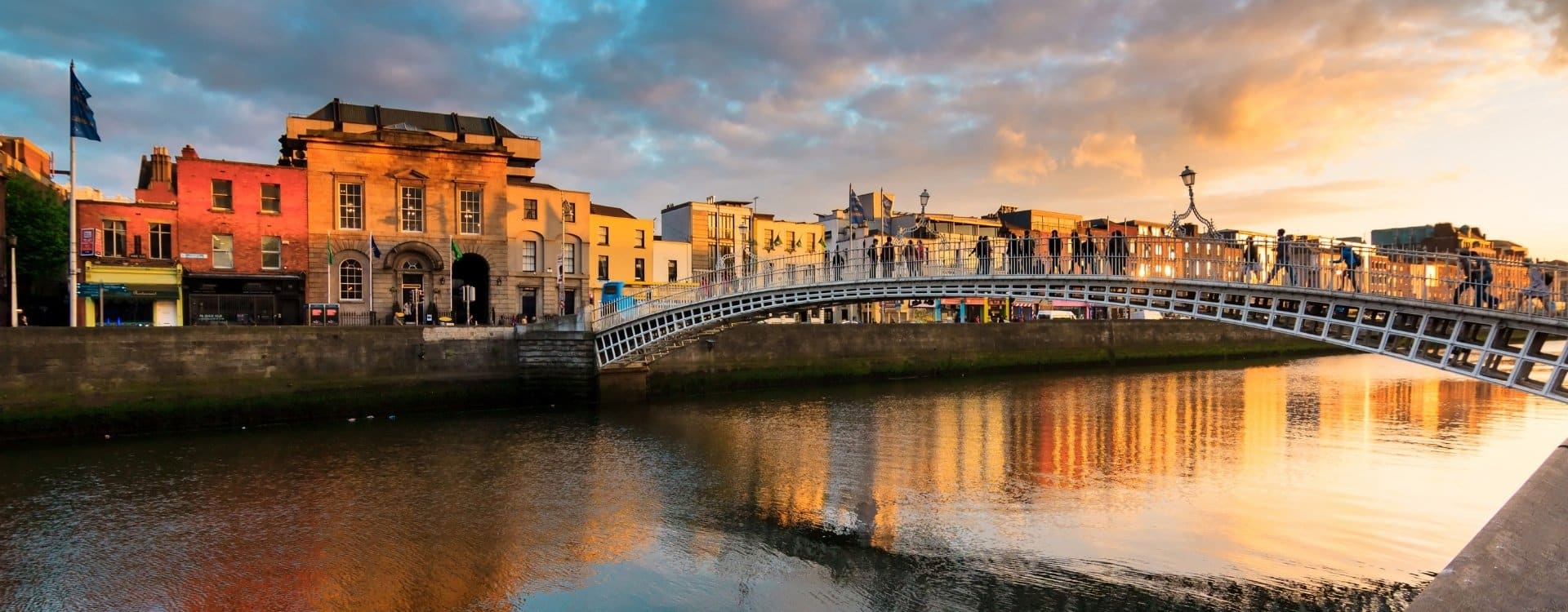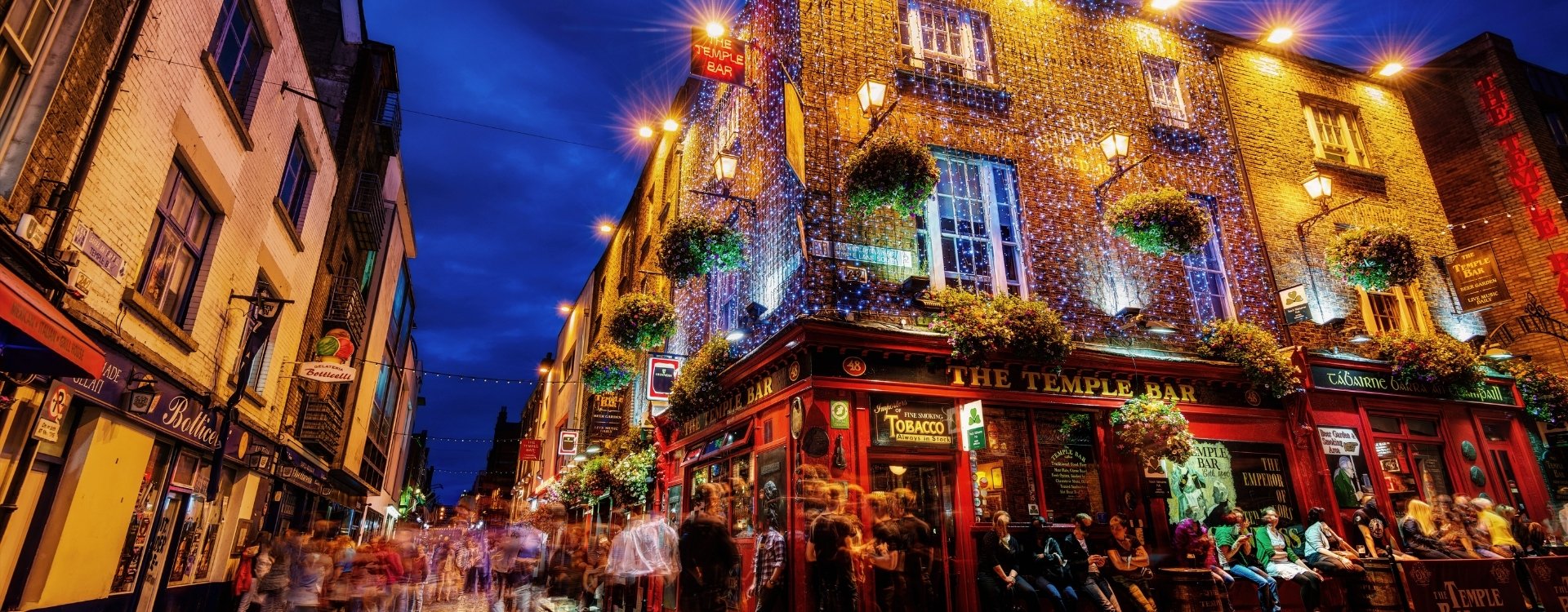Ireland, the Emerald Isle, has long been a popular destination for expats seeking a unique combination of culture, opportunity, and breathtaking natural beauty. However, like any other country, living in Ireland has its pros and cons. This detailed guide examines the advantages and disadvantages of living and working in Ireland, helping you decide if it’s the right place for your next chapter.
Latest jobs in Ireland
Advantages of Living and Working in Ireland
1. Geographical Location
Ireland’s location makes it a prime gateway between Europe and North America. Major cities like Dublin and Cork have excellent international connections, making travel convenient for both work and leisure. It’s possible to reach London in just over an hour or fly to New York within six hours. For frequent travelers, Ireland’s strategic location is a significant advantage. Additionally, Ireland’s natural beauty—spanning dramatic cliffs, rolling green hills, and pristine beaches—offers endless opportunities for weekend getaways without leaving the island.
2. Low Crime Rates
Ireland is among the safest countries in the world, with low crime rates and a high level of personal security. Violent crimes are rare, and the country enforces strict gun control laws, ensuring public safety. Even in cities like Dublin, where petty crimes like pickpocketing can occur in tourist-heavy areas, residents generally report feeling safe. This secure environment makes Ireland particularly attractive for families and individuals seeking peace of mind.
3. Quality Healthcare System
Ireland’s healthcare system is robust, offering both public and private healthcare options. The public system provides subsidized healthcare services, and those earning below a certain income threshold can qualify for a medical card, granting free access to many treatments. While public healthcare can involve wait times, private insurance allows faster access to specialists and elective procedures. For expats, having a comprehensive understanding of the system ensures they can make the most of Ireland’s medical facilities.
4. Dual Citizenship Opportunities
Ireland allows dual citizenship, meaning you can retain your original nationality while obtaining Irish citizenship. This is particularly advantageous for individuals seeking the freedom to live and work across the European Union. The process to gain Irish citizenship can be simplified for those with Irish ancestry, making it a compelling option for individuals with familial ties to the country.
5. Accessible Banking System
Ireland’s banking system is straightforward, making it easy for newcomers to set up financial services. Opening a bank account requires only valid identification and proof of address, and many banks offer specific services tailored for expats. While some may request additional documents like previous financial records, the overall process is quick and efficient, ensuring smooth integration into the country’s financial system.
6. Efficient Public Transportation
Major cities like Dublin and Cork feature reliable public transportation systems, including buses, trains, and trams. The DART (Dublin Area Rapid Transit) and intercity train services connect commuters across regions, making it easy to navigate the country without a car. While public transport in rural areas is more limited, affordable car rentals and a growing network of coaches bridge the gap, ensuring accessibility.
7. Vibrant Pub Culture
Ireland’s pubs are more than just places to grab a pint—they’re cultural institutions. Whether you’re enjoying live traditional music, engaging in lively conversations, or savoring hearty meals, pubs offer a window into Irish life. For newcomers, visiting these social hubs can be a fantastic way to connect with locals and learn about the community. From the cozy pubs of small villages to bustling establishments in Dublin, the pub culture is a cherished aspect of life in Ireland.

Disadvantages of Living and Working in Ireland
1. Unpredictable Weather
Ireland’s weather is famously unpredictable, with frequent rain and overcast skies throughout the year. While the mild temperatures make it tolerable, the lack of sunshine can feel gloomy, especially for those accustomed to sunnier climates. Even in summer, rain showers are common, so packing a raincoat and umbrella is essential. However, the upside is Ireland’s lush, green landscapes, which owe their beauty to the abundant rainfall.
2. High Cost of Living
Ireland, particularly cities like Dublin, has a high cost of living. Housing is a significant expense, with rental prices for a one-bedroom apartment in Dublin averaging €1,500–€2,000 per month. Groceries, utilities, and transportation costs can also add up quickly. However, living outside major urban centers can offer more affordable options, with smaller towns providing lower housing costs and a slower pace of life.
3. Prevalent Drinking Culture
While Ireland’s pub culture is one of its highlights, the emphasis on drinking can feel overwhelming for those who prefer not to consume alcohol. Social gatherings often revolve around pubs, and alcohol plays a significant role in celebrations and events. Expats who do not drink might find it challenging to fully integrate into certain aspects of Irish social life.
4. Challenges in Home Ownership
Ireland’s housing market can be competitive, with high demand in urban areas driving up prices. Obtaining a mortgage may be challenging for expats, as banks often impose stricter lending criteria for non-residents. Additionally, the availability of homes is limited in certain regions, making it essential to plan housing options well in advance of relocating.

Is Ireland Right for You?
Ireland offers a unique lifestyle characterized by safety, a welcoming culture, and stunning natural beauty. While its high cost of living and unpredictable weather may pose challenges, the country’s opportunities for professional growth, cultural enrichment, and travel make it an appealing destination for many. By understanding both the advantages and drawbacks, you can better prepare for a fulfilling experience on the Emerald Isle.



